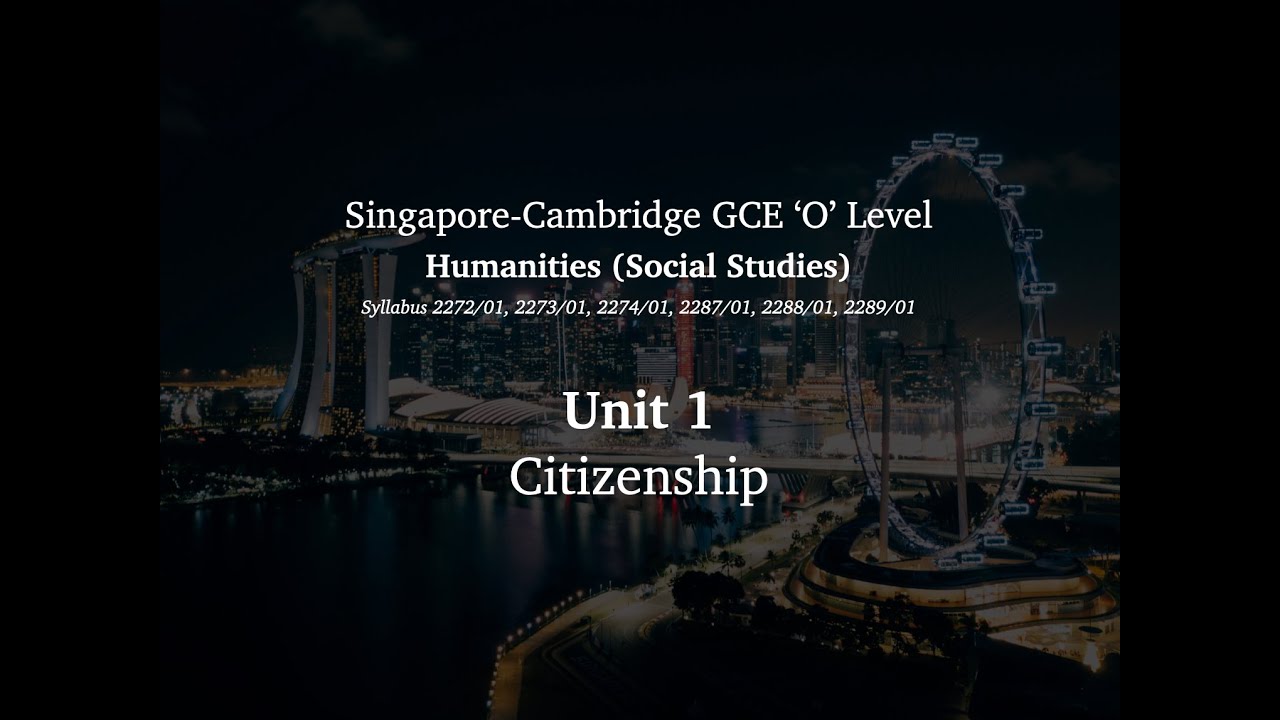Mata Kuliah PKn (Hak & Kewajiban Warga Negara)
Summary
TLDRIn this civic education lecture, Suhartono delves into the rights and obligations of citizens, exploring key topics such as the difference between citizens and residents, the formation of a state, and the legal framework governing citizenship. The lecture covers theories of state formation, the essential elements of a state, and the principles for determining citizenship, such as Jus Soli and Jus Sanguinis. Additionally, it highlights the rights and obligations of Indonesian citizens as outlined in the 1945 Constitution, including equality before the law, the right to work, education, and the obligation to defend the country.
Takeaways
- 😀 The rights and obligations of citizens are inherent to their relationship with the state, involving reciprocal duties and benefits.
- 😀 Citizens are legally recognized members of a country, while residents are individuals living in an area without necessarily being citizens.
- 😀 A country must have three main elements: territory, population, and government to be considered a legitimate state.
- 😀 Citizens have special legal positions, with rights that cannot be transferred or represented by others, and obligations that must be fulfilled.
- 😀 There are multiple theories regarding the formation of a country, including natural law, divine theory, and social contract theory.
- 😀 State formation can happen through conquest, fusion, secession, or occupation of ungoverned land.
- 😀 The key principles of citizenship include birth, marriage, and descent (Ius Sanguinis).
- 😀 Citizenship law governs the relationship between individuals and the state, based on distributive, legal, and commutative relationships.
- 😀 There are principles for determining citizenship based on birth, including the principle of place of birth and descent.
- 😀 The rights and obligations of Indonesian citizens are outlined in the 1945 Constitution, including the right to work, freedom of association, education, and defense of the country.
Q & A
What is the main focus of the lecture?
-The main focus of the lecture is the rights and obligations of citizens, discussing how these relate to national and state life.
What are the expected competencies after completing the lesson on the rights and obligations of citizens?
-After completing the lesson, students are expected to be able to analyze and identify the rights and obligations of citizens in the context of national and state life.
What are the key sub-topics covered in the lecture?
-The key sub-topics include: understanding citizens, residents, and people; theories about the state; citizenship laws; principles for determining citizenship; and types of rights and obligations of citizens.
How does Professor Notonegoro define 'rights' and 'obligations'?
-Professor Notonegoro defines rights as the power to receive or do something that should be received or done by a certain party, and obligations as the burden to give or let something that should be given or left, which can both be demanded by force.
What is the difference between 'citizens' and 'residents'?
-Citizens are people who are legally members of a country, while residents are people living in a certain area but may not be citizens of that country.
What are the essential elements of a country?
-The essential elements of a country include territory, population or citizens, and a government system. These are considered mandatory or de facto elements of a country.
What are 'declarative elements' of a country?
-Declarative elements refer to the recognition of a country by other countries, the country’s goals, its constitution, and membership in international organizations like the UN.
What are the characteristics of the state according to Professor Miriam Budiardjo?
-According to Professor Miriam Budiardjo, the characteristics of the state include being monopolistic, coercive, and all-encompassing.
What are the processes of state formation mentioned in the lecture?
-The processes of state formation include conquest, fusion, secession, and occupation of ungoverned territories.
What principles determine a person’s citizenship?
-The principles determining citizenship include birth-based principles (place of birth or descent), marriage-based principles, and principles based on citizenship law, such as active or passive system principles.
What does the 1945 Indonesian Constitution say about citizens' rights and obligations?
-The 1945 Constitution outlines various rights and obligations, including equality before the law (Article 27), the right to work and a decent living (Article 27), the obligation to defend the country (Article 27), and the right to education (Article 31), among others.
Outlines

此内容仅限付费用户访问。 请升级后访问。
立即升级Mindmap

此内容仅限付费用户访问。 请升级后访问。
立即升级Keywords

此内容仅限付费用户访问。 请升级后访问。
立即升级Highlights

此内容仅限付费用户访问。 请升级后访问。
立即升级Transcripts

此内容仅限付费用户访问。 请升级后访问。
立即升级5.0 / 5 (0 votes)






